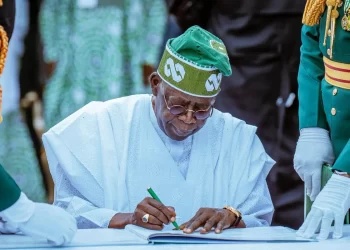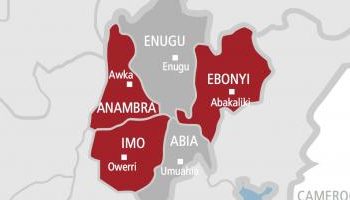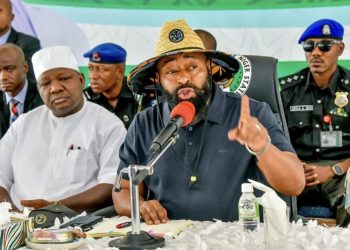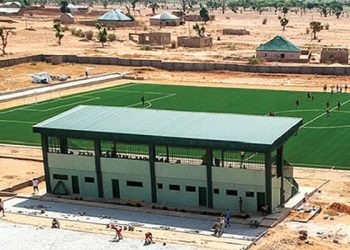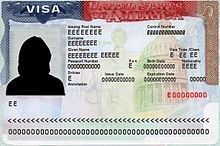Edo State Governor Monday Okpebholo’s insistence that the Labour Party’s 2023 presidential candidate, Peter Obi, must seek his approval before visiting Edo State is not only an affront to basic decency but a clear subversion of the 1999 Constitution.
It is outrageous, unacceptable, and profoundly dangerous for any elected governor to arrogate to themselves the power to demand “security clearance” of opposition figures before they set foot in parts of their own country for any reason.
This reckless overreach is a direct threat to Nigeria’s fragile democracy and freedoms, particularly at a time when national insecurity already exacts a daily toll of blood and fear. Such base politics belong to the Dark Ages. Emperors cannot do much worse than Okpebholo.
Obi visited Edo State on July 7, where he donated N15 million to the St. Philomena School of Nursing for infrastructure. Okpebholo alleged on July 18 that the donation instigated violence. He said Obi ought to have sought clearance, and he could not guarantee Obi’s safety during future visits.
Yet, this pattern of highhandedness and intolerance toward the opposition, a core component of any functional democracy, did not start with Okpebholo.
Back in April, Benue State Governor Hyacinth Alia similarly banned Obi from visiting IDP camps and health facilities in the state. Alia cited similar puerile excuses over protocol and security. This is infernal.
Just last Friday, the Kaduna State Police Command stopped a planned rally by Obi’s supporters to mark his birthday, citing alleged plans to cause disruption, incite violence, and disturb the prevailing public peace in the state.
The Constitution of the Federal Republic of Nigeria is clear: every citizen has the right to move freely, speak without fear, and associate without interference throughout the republic. Section 41(1) guarantees unrestricted freedom of movement, so long as it is not for crime or violence. Obi is not on record as engaging in such illegalities in his philanthropic jaunts.
Section 39 of the 1999 Constitution enshrines the right to free expression. These rights are inalienable, not privileges to be dispensed or withheld at the whim of any governor, regardless of office or “Chief Security Officer” status.
The Constitution cannot be subordinated to local politicking or the personal insecurities of state administrators. Governors must remember they are not above the law.
After facing public backlash, the Edo State Government claimed that the governor’s “security clearance” for high-profile persons is necessary to implement adequate security measures and prevent politically motivated activities from endangering lives and property. This is flat-out nonsense.
If Okpebholo were truly delivering democratic dividends to his people, he would have no reason to fear an opposition leader’s visit. Issuing public threats or creating bureaucratic hurdles for political opponents is the age-old tactic of those who fear competition.
Nigeria’s leaders should be doubling down on their constitutional duties to protect lives, not manufacturing excuses to muzzle rivals or inflame political tensions.
Any attempt by a state governor to play gatekeeper to opposition visits is a gross misreading of the law, a betrayal of democratic values, and a recipe for future instability. Nigerians must resist this.
By attempting to set parameters for charity, the governor overstepped the limits of decency and the constitutional right to freedom of association.
Instead of commending Obi’s support for the parlous health sector, the state government chose to cast aspersions.
The claim that Obi placed then-Kaduna State Governor, Nasir el-Rufai, under house arrest during the 2013 Anambra governorship election has been refuted by security agencies each time it has been revived.
The same thing applies to Alia, who said Obi should take his charitable donations to IDPs in Anambra State. This betrays the hidden undercurrents within the political class.
Governors have learned little from history: the abuse of state power in past dispensations led to needless bloodshed, destruction, and ultimately, the collapse of Nigeria’s Second Republic.
The ability to allow all shades of opinion is the hallmark of maturity and political sagacity. Okpebholo and Alia should remember that their party, the All Progressives Congress, was in the opposition in the recent past.
In June 2014, soldiers deployed by the ruling Peoples Democratic Party government prevented then-Governors Rotimi Amaechi of Rivers State and Adams Oshiomhole of Edo State from entering Ekiti State for an APC governorship campaign rally.
In the same month, aviation authorities recalled a helicopter conveying Oshiomhole from Government House, Benin, to Awka for a burial on the excuse that its operators did not pay landing and aerodrome fees.
Even after the helicopter returned to Benin, the governor was delayed in the helicopter for more than one hour in the chopper until he angrily disembarked and left.
In November 2014, a chartered flight conveying then APC presidential aspirant, Muhammadu Buhari, and some APC leaders from Bayelsa State was prevented from landing at Makurdi Airport by aviation authorities.
These actions undermine democracy and national unity.
The Inter-Parliamentary Union says vibrant democracies must embrace political tolerance: “This means accepting and respecting the basic rights and civil liberties of persons and groups whose viewpoints differ from one’s own.
“All citizens, including political leaders, have a responsibility to practise political tolerance in their words and actions. As a clear rejection of ‘might makes right,’ political tolerance is a key principle of democracy.”
Ultimately, Nigerian politicians must realise that politics is not a do-or-die. They should play politics within the bounds of decency and the law.
The main actors, especially the governors and party apparatchiks, should purge themselves of the intolerance for the opposition.
Indeed, the opposition is a major part of democracy. Democracy is weak or empty without the opposition.
So, the incumbents should not be afraid of the opposition. By performing well, the opposition cannot displace them in elections.
The activities of NGOs resonate among Nigerians primarily because governance fails in many respects in national life.
Poverty is extreme, infrastructure is scant, citizens’ welfare is poor, and health and education are out of the reach of the majority. All this creates a vacuum filled by NGOs and philanthropists.
Okpebholo should beware of setting a dangerous precedent. His outburst undermines Nigeria’s fragile unity, as Obi’s ethnic stock might view his warning as a slight against the Igbo nation.
This is a testy moment ahead of 2027. Intolerance of the opposition unwittingly created the violent atmosphere of the First Republic, which the military exploited to seize power illegally.
Politicians must resist inciting their followers to violence under any guise. Their mandate is to serve, not to instigate rancour and lawlessness.
At the national level, the Federal Government’s body language is emboldening governors and APC members to act recklessly. If the APC truly values democracy, it must condemn Okpebholo’s action.
During the debate for President Donald Trump’s ‘One Big Beautiful Bill,’ two House of Representatives legislators from the Republican party voted against it, though it passed narrowly at 218-214. In the US Senate, it took a deciding vote by Vice-President JD Vance to break the tie after three Republican senators voted against the bill.
This is a moment for boldness, courage, and adherence to the rule of law. Law enforcement agencies, especially the police, must demonstrate professionalism and impartiality. They must not let those with ephemeral power destabilise society.


